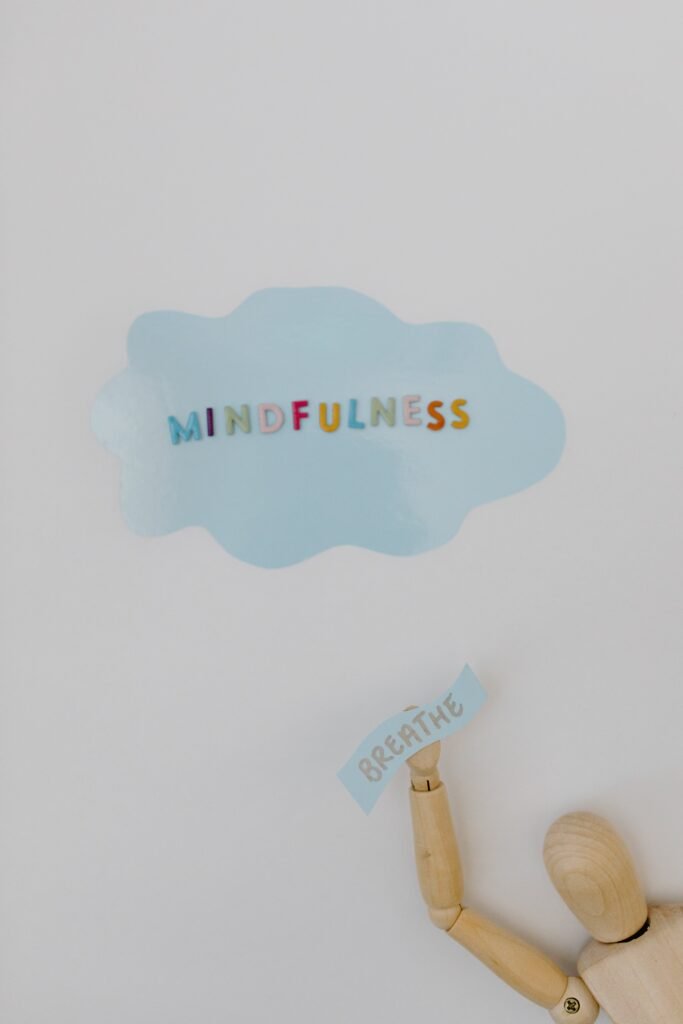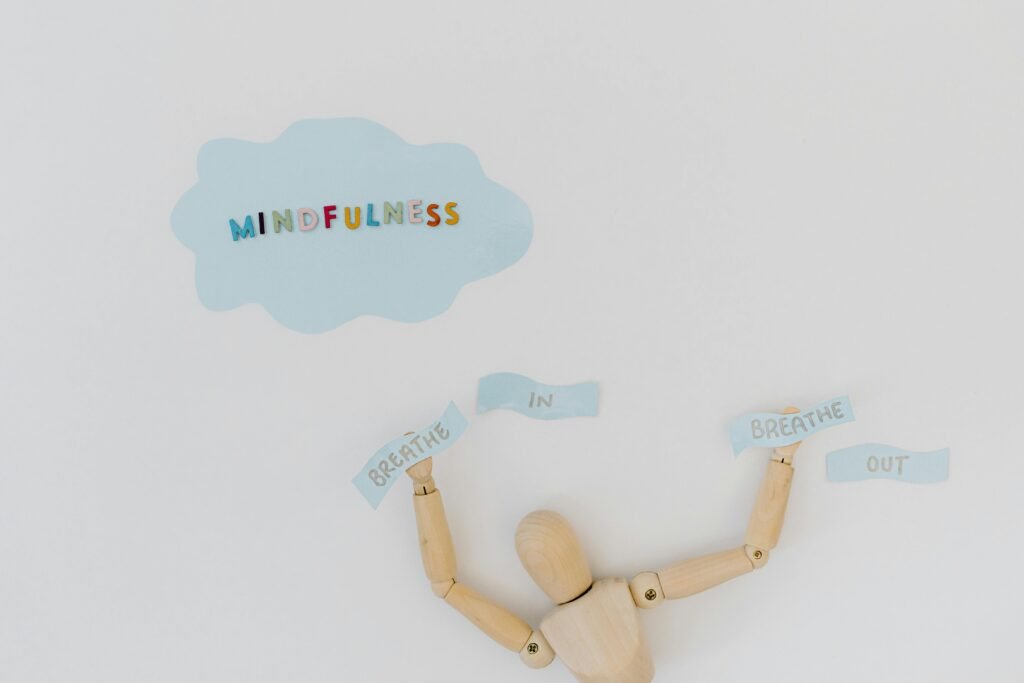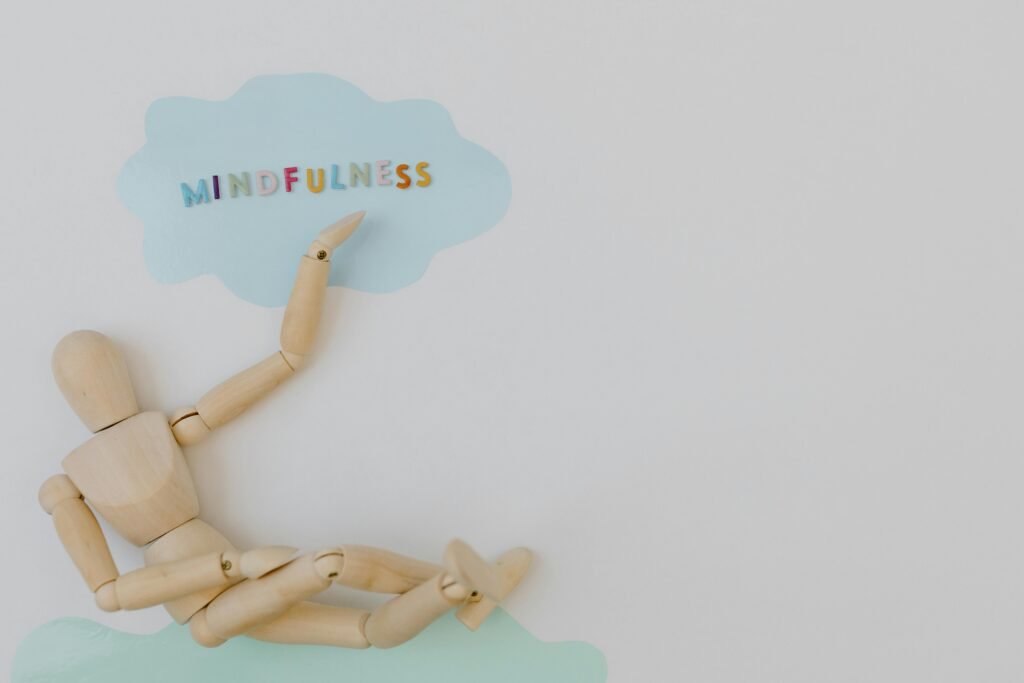Depression can be a relentless battle, weighing you down and clouding your mind, but what if there was a way to find solace amidst the chaos? It turns out that mindfulness, the practice of being fully present and aware of the present moment, could be a powerful tool in alleviating symptoms of depression. By focusing on the sensations in your body and observing your thoughts without judgement, mindfulness can help you cultivate resilience, strengthen your mental well-being, and potentially find a path towards healing. In a world where the noise is deafening, perhaps all we need is a little mindfulness to help us navigate through the darkness and find some light.

Understanding Depression
Definition of Depression
Depression is a serious mental health disorder that affects millions of individuals worldwide. It is characterized by persistent feelings of sadness, hopelessness, and a loss of interest in activities that were once pleasurable. Depression can significantly impact a person’s daily functioning and overall quality of life.
Causes of Depression
Depression can have various causes, and it is often a result of multiple factors working together. It can be triggered by stressful life events, such as the loss of a loved one, relationship problems, or financial difficulties. Biological factors, including imbalances in brain chemicals or genetics, can also contribute to the development of depression. Additionally, certain medical conditions and the use of certain medications can increase the risk of experiencing depression.
Symptoms of Depression
Depression manifests through a wide range of symptoms that can vary from person to person. Common symptoms include persistent sadness, feelings of worthlessness or guilt, changes in appetite and weight, sleep disturbances, lack of energy, difficulty concentrating, and recurring thoughts of death or suicide. It’s important to note that not everyone with depression experiences all of these symptoms, and the severity and duration of symptoms can also vary.
What is Mindfulness?
Definition of Mindfulness
Mindfulness is a practice rooted in ancient Buddhist traditions that has gained significant popularity in recent years. It involves intentionally focusing on the present moment, without judgment or attachment, and being fully aware of one’s thoughts, emotions, and bodily sensations.
Practice of Mindfulness
Practicing mindfulness involves cultivating a state of open awareness and acceptance of the present moment. It can be done through various techniques, including mindfulness meditation, body scan exercises, and being fully present in daily activities. By directing their attention to the present moment, individuals are encouraged to observe and acknowledge their thoughts and emotions without getting caught up in them or trying to change them.
Effectiveness of Mindfulness in Dealing with Depression
Research Studies on Mindfulness and Depression
Numerous research studies have investigated the effectiveness of mindfulness in treating depression, and the results have been promising. A meta-analysis conducted in 2018 found that mindfulness-based interventions showed significant reductions in depressive symptoms compared to control groups. These interventions included mindfulness-based cognitive therapy (MBCT) and mindfulness-based stress reduction (MBSR), among others.
Benefits of Mindfulness for Depression
Mindfulness has been found to offer several benefits in the management of depression. It helps individuals develop a greater ability to observe and accept their thoughts and emotions, reducing the tendency to become overwhelmed by negative thinking or rumination. By cultivating a non-judgmental attitude, mindfulness encourages self-compassion and helps individuals develop a more positive relationship with themselves. Additionally, mindfulness can enhance emotion regulation skills, allowing individuals to respond to difficult emotions in a more adaptive and balanced way.
Mechanism of Mindfulness in Addressing Depression
Reducing Rumination and Negative Thinking
One of the ways mindfulness helps in addressing depression is by reducing rumination and negative thinking patterns. By observing thoughts without judgment, individuals can gain distance from their negative thinking and break the cycle of rumination that often accompanies depression. This shift in perspective allows individuals to develop more positive and constructive ways of thinking.
Emotion Regulation
Mindfulness practice involves acknowledging and accepting emotions without getting overwhelmed by them. By developing awareness and non-reactivity to emotions, individuals can better regulate their emotional responses. This increased emotional regulation can be particularly helpful for individuals with depression, as it allows them to respond to challenging emotions in a healthier and more adaptive manner.
Increasing Self-Compassion
Depression can often lead to self-criticism and feelings of worthlessness. Mindfulness practice helps individuals cultivate self-compassion by encouraging a non-judgmental attitude towards oneself. Through mindfulness, individuals can develop a more compassionate and caring relationship with themselves, which can counteract the negative self-perceptions often associated with depression.

How to Practice Mindfulness for Depression
Mindfulness Meditation
Mindfulness meditation is a foundational practice of mindfulness for addressing depression. It involves sitting comfortably, focusing on the breath, and bringing attention to the present moment. When thoughts or emotions arise, individuals are encouraged to observe them without judgment and gently return their focus to the breath. Regular practice of mindfulness meditation can help individuals develop greater mindfulness and awareness in their daily lives.
Body Scan Exercise
The body scan exercise is another valuable technique for practicing mindfulness. It involves systematically bringing attention to each part of the body, noticing the sensations without judgment. This exercise helps individuals develop a heightened awareness of their bodies and can promote a sense of relaxation and connection to the present moment.
Being Present in Daily Activities
Mindfulness is not limited to formal meditation practice. It can be integrated into daily activities by simply paying attention to the present moment. Whether it’s eating, walking, or engaging in mundane tasks, individuals can bring mindfulness to their experiences by fully immersing themselves in the sensations, sights, and sounds of the present moment.
Combining Mindfulness with Other Treatments
Mindfulness-Based Cognitive Therapy (MBCT)
Mindfulness-Based Cognitive Therapy (MBCT) is a treatment program specifically designed for individuals with recurrent depression. It combines elements of cognitive therapy with mindfulness practices to help individuals learn new ways of relating to their thoughts and emotions. MBCT has been shown to be effective in reducing the risk of depressive relapse and promoting overall well-being.
Acceptance and Commitment Therapy (ACT)
Acceptance and Commitment Therapy (ACT) is another therapeutic approach that incorporates mindfulness practices. It emphasizes accepting difficult thoughts and emotions, rather than trying to change or avoid them. By focusing on personal values and taking committed action towards one’s goals, individuals can make meaningful changes in their lives, even in the presence of depression.

Finding Professional Help with Mindfulness
Mindfulness-Based Interventions
If you’re interested in incorporating mindfulness into your journey of managing depression, seeking out mindfulness-based interventions can be beneficial. These programs are typically led by trained professionals and provide structured guidance in learning and practicing mindfulness. Mindfulness-Based Stress Reduction (MBSR) and Mindfulness-Based Cognitive Therapy (MBCT) are examples of such interventions.
Finding a Mindfulness Therapist
If you’re considering working with a therapist who specializes in mindfulness, it’s important to find someone who is experienced and knowledgeable in this area. Look for licensed mental health professionals who have received mindfulness training and have experience working with individuals dealing with depression. It’s also important to find a therapist with whom you feel comfortable and can establish a trusting relationship.
Tips for Starting Mindfulness Practice for Depression
Start with Short Sessions
When starting a mindfulness practice for depression, it’s essential to start with short sessions and gradually increase the duration as you become more comfortable. Begin with just a few minutes each day and gradually work your way up to longer sessions. By starting small, you’re more likely to maintain consistency and avoid feeling overwhelmed.
Be Consistent
Consistency is key when it comes to mindfulness practice. Aim to practice mindfulness every day, even if it’s just for a few minutes. Set aside a specific time and place for your practice to create a routine. Consistency helps reinforce the habit of mindfulness and maximizes its benefits in managing depression.
Be Patient and Kind to Yourself
Mindfulness is a skill that develops over time, so it’s important to be patient with yourself as you begin your practice. Avoid placing unrealistic expectations on yourself and embrace the process of learning and growing. Adopting a kind and compassionate attitude towards yourself is crucial in cultivating mindfulness and supporting your journey of addressing depression.
Addressing Challenges in Mindfulness Practice for Depression
Resistance to Mindfulness
It’s common for individuals to experience resistance or skepticism towards mindfulness, especially when dealing with depression. Some individuals may feel that their thoughts and emotions are too overwhelming to face directly. It’s important to recognize and acknowledge these feelings but also remember that mindfulness is a practice that can be adapted to individual needs. Starting with small, manageable steps can help overcome resistance and gradually build a foundation for a successful mindfulness practice.
Overcoming Distractions
Distractions are bound to arise during mindfulness practice, especially when depression can bring a racing mind or a lack of focus. It’s important to acknowledge and accept these distractions without judgment and gently guide your attention back to the present moment. Cultivate a compassionate mindset towards yourself and view distractions as part of the mindfulness journey rather than as failures.
Dealing with Strong Emotions
Mindfulness practice can sometimes bring up intense emotions, especially when addressing depression. It’s important to approach these emotions with gentleness and self-compassion. Allow yourself to feel the emotions fully and observe them without judgment. If needed, seek support from a therapist or mental health professional who can help guide you through the process of addressing strong emotions.
Conclusion
Mindfulness offers a powerful tool for individuals dealing with depression. By cultivating awareness, non-judgment, and self-compassion, mindfulness can help individuals break free from negative thinking patterns, regulate emotions, and develop a greater sense of well-being. While it may not be a standalone treatment for depression, mindfulness can be an effective complement to other therapies and interventions. By incorporating mindfulness into your daily life and seeking professional guidance, you can embark on a journey of managing depression with increased strength, resilience, and self-awareness. Remember, practicing mindfulness takes time and patience, but the benefits are worth the effort.

Hello, I’m Kelly Joseph, the author behind Optimum Mindset for an Optimal Lifestyle. Welcome to our website, where we dive deep into the world of mindfulness techniques and productivity hacks. With a mission to help you achieve a more fulfilled life, we offer a comprehensive guide to mastering the art of an optimum mindset. I am passionate about enhancing mental resilience, fostering positivity, and unlocking the potential for goal achievement. This site is a treasure trove of practical tips and strategies that will empower you to live life to the fullest. Join me on this journey of self-discovery and personal growth.

